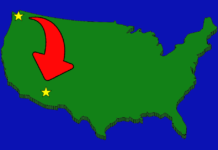At first glance, the new West Nile virus testing lab inside the walls of Pinal County’s Environmental Health Offices does not look very impressive. There are no banks of computers, Bunsen burners or microscopes that inhabit the desks inside the small room.
But this little lab is able to produce much faster results in the hunt for WNV across Pinal County. “For the past two years the state lab has been overwhelmed with the amount of mosquito samples brought in from all the counties,” said Tami Schuler, a technician for the Pinal County’s Division of Environmental Health.
Schuler, who has been focused on Pinal County’s battle with WNV for the past three years, says that test results could take up to two weeks if the mosquitoes were sent to the state lab in Phoenix. Now, with the testing lab in place locally, results can be achieved in as little as an hour and a half. The quicker turn around time means a faster response time if a positive sample of WNV is found.
“Before, we might wait two weeks or more to find out if we had any positive results from an area we sampled,” Schuler says as she examines a vial of dead mosquitoes. “Now, if our lab turns up a positive sample, we can immediately schedule the area to be fogged. This lab helps us fight WNV much more effectively.”

Environmental Health Technician Tami Schuler examines a mosquito in Pinal County’s new West Nile virus testing lab.
Due to the tremendous number of samples coming into their laboratories, the State of Arizona gifted the county with the testing equipment to help alleviate the crush in Phoenix. Pinal joins Maricopa, Pima and Yuma counties in having their own facilities for testing.
The new facility has already received a workout as Schuler has tested four dead birds and 11 mosquito samples. So far, no signs of WNV have been detected in the county, which is a different story from last year.
“By this time last year we already were looking at a positive sample for West Nile,” Schuler said. “That was because of the wet winter we had. So far this year it has been relatively dry, which means there are fewer mosquitoes out there. But I heard forecasts that predict we are going to have a summer with lots of heat and moisture. If that happens, we will be busy.”

![‘Flying Bucket Fire’ doubles size, causes $200K in damage Tucson's Northwest Fire District crew members assist in firefighting efforts on the "Flying Bucket Fire" approximately 15 miles southwest of Maricopa on May 8, 2024. [Northwest Fire District]](https://www.inmaricopa.com/wp-content/uploads/2024/05/northwest-fire-district-050824-flying-bucket-fire-01-218x150.jpg)
![GAME OVER: The city government tried to get into gaming. It failed Maricopa Esports [Victor Moreno]](https://www.inmaricopa.com/wp-content/uploads/2024/05/263342f5-13e7-4668-838c-f574392086fb-218x150.jpg)



![Rizz party organizers say city ‘lying’ One of several flyers for a "TikTok rizz party" is taped to a door in the Maricopa Business Center along Honeycutt Road on April 23, 2024. [Monica D. Spencer]](https://www.inmaricopa.com/wp-content/uploads/2024/04/spencer-042324-tiktok-rizz-party-flyer-web-218x150.jpg)
![Province writer opens the athlete’s mind in new book Tom Schuman, a Province resident, poses with a copy of his new book, "My Wide World of Sports," outside his home on May 2, 2024. [Monica D. Spencer]](https://www.inmaricopa.com/wp-content/uploads/2024/05/spencer-050224-tom-schuman-sports-book-web-01-218x150.jpg)







![JWP to see more restrictions Monday John Wayne Parkway [Brian Petersheim Jr.]](https://www.inmaricopa.com/wp-content/uploads/2023/03/991A6929-100x70.jpg)

![Traffic change to reduce backup at Villages intersection The intersection at Butterfield Parkway and West Edison Road on May 10, 2024. [Brian Petersheim Jr.]](https://www.inmaricopa.com/wp-content/uploads/2024/05/PJ_5644-100x70.jpg)